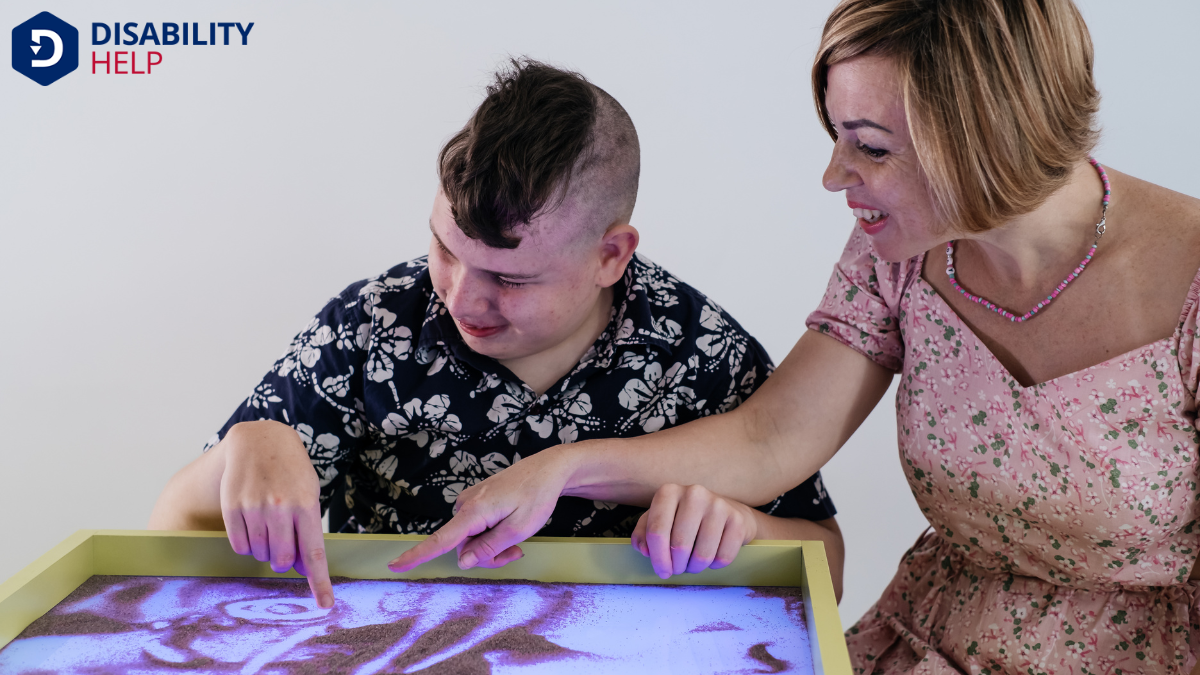You're aware that scholarships can be a lifeline for students with disabilities, but do you know which types are covered? From physical and sensory disabilities to cognitive challenges and mental health disorders, there's a wide range of support available. These scholarships aim to level the playing field, yet the specifics can vary greatly. Curious about how these programs can make a difference in a student's educational journey? There's a lot more to explore.
Key Takeaways
- Scholarships are available for students with physical disabilities such as cerebral palsy or muscular dystrophyA group of genetic diseases causing progressive weakness and loss of muscle mass..
- Financial aid supports students with sensory disabilities, including vision and hearing impairments.
- Cognitive disabilities, like traumatic brain injuries, are covered by scholarships for educational assistance.
- Learning disabilities, including dyslexiaA learning disorder characterized by difficulty reading due to problems identifying speech sounds an... and ADHDAttention Deficit Hyperactivity Disorder, characterized by inattention, hyperactivity, and impulsivi..., have specific scholarships to encourage academic success.
- Mental health disorders, such as anxiety and depressionA mental health condition marked by persistent feelings of sadness and loss of interest., are recognized for scholarship opportunities.
Physical Disabilities
When you explore scholarships for physical disabilities, you'll find a range of opportunities designed to support students with mobility impairments and chronic health conditions. These scholarships aim to break down barriers, offering financial assistance to pursue your educational goals.
If you have conditions like cerebral palsy, multiple sclerosis, or muscular dystrophy, you might qualify for these funds. It’s important to research and connect with organizations that focus on these areas, as they often provide targeted scholarships.
Your application should highlight your achievements and how you've overcome challenges related to your disability. Personal stories and experiences can make your application stand out.
Sensory Disabilities

Shifting focus from physical to sensory disabilities, scholarships are also available to support students who face challenges related to vision and hearing impairments.
If you have a visual impairmentA condition where a person has a decreased ability to see, even with corrective lenses., you might find scholarships designed to assist with the costs of specialized equipment, adaptive technologies, and even tuition. These scholarships often aim to enhance your educational experience by addressing specific needs you might encounter.
For students with hearing impairments, scholarships can help cover expenses like sign language interpreters or assistive listening devices.
Some scholarships are offered by organizations dedicated to supporting the deaf and hard-of-hearing community, providing financial aid to guarantee you have access to the resources necessary for success.
Cognitive Disabilities
Although often less visible, cognitive disabilities can greatly impact your educational journey, and scholarships are available to assist in overcoming these challenges. These disabilities might include conditions like traumatic brain injuries, memory disorders, or developmental issues that affect attention, perception, or problem-solving abilities.
Maneuvering through college life with these challenges can be tough, but financial assistance can ease some burdens. You might find scholarships specifically aimed at students with cognitive disabilities, which can cover tuition, books, or living expenses.
These scholarships not only provide financial relief but also recognize your determination and resilienceThe ability of individuals with disabilities to cope with and adapt to challenges and adversity.. To apply, you’ll generally need to provide documentation of your disability and demonstrate how it affects your education.
Learning Disabilities
Steering through the world of education with learning disabilities can be challenging, but scholarships are available to support your journey.
These scholarships recognize that learning disabilities, such as dyslexia, ADHD, and dyscalculia, don't define your potential. They're designed to help you overcome barriers and achieve academic success.
Many organizations and institutions offer scholarships specifically for students with learning disabilities, aiming to provide financial support and encouragement.
Mental Health Disorders

Steering through the educational landscape with learning disabilities is just one piece of the puzzle; mental health disorders can also present significant challenges. You might face anxiety, depression, or bipolar disorderA mental health condition characterized by extreme mood swings, including manic and depressive episo..., which can impact your academic journey.
Recognizing these hurdles, many scholarships aim to assist students like you. They understand that mental health is essential for success and offer financial support so you can focus on your well-being and studies.
To find these opportunities, research organizations dedicated to mental health advocacyEfforts to promote the rights, treatment, and well-being of individuals with mental health condition... or disability support services at your institution. Don’t hesitate to reach out and apply; these scholarships aren’t just about financial aid—they’re about acknowledging your resilience and commitment.
You're not alone, and support is within reach.
Chronic Illnesses
Maneuvering the academic world with a chronic illnessA long-term health condition that requires ongoing management, such as diabetes or multiple sclerosi... can often feel overwhelming, but there are scholarships designed to lighten your load. These scholarships recognize your resilience and offer financial support to help you focus on your studies.
Here are some ways these scholarships can assist you:
- Financial Relief: Scholarships can cover tuition, books, and other educational expenses, easing your financial burden.
- Tailored Opportunities: Some scholarships are specifically for students with chronic illnesses, acknowledging the unique challenges you face.
- Networking: Scholarships often connect you with organizations and individuals who understand your experiences, providing a supportive community.
- Encouragement: Receiving a scholarship can boost your confidence, affirming your capability to succeed despite health challenges.
Neurodevelopmental Disorders
Steering through the academic landscape with neurodevelopmental disorders can present unique challenges, yet scholarships specifically designed for students like you can offer vital support.
These scholarships acknowledge the hurdles faced by students with autism, ADHD, dyslexia, and other neurodevelopmental conditions. They provide financial assistance, ensuring you have the resources to focus on your studies without added stress.
Understanding what each scholarship offers and its eligibility criteria is significant. Some scholarships may require documentation or proof of diagnosis, so being prepared with the necessary paperwork can streamline the application process.
Conclusion
In seeking scholarships, you'll find that a wide array of disabilities is acknowledged and supported. Whether you face physical, sensory, cognitive, or learning challenges—or navigate mental health disorders, chronic illnesses, or neurodevelopmental disorders—there are opportunities designed to help you succeed. These scholarships don't just cover tuition; they also fund adaptive technologies and living expenses. Embrace these resources as a demonstration of your resilience, and let them propel you toward your academic and personal goals.






